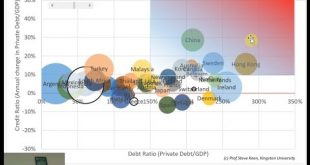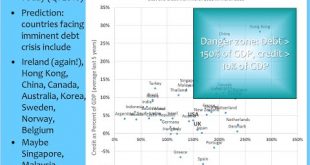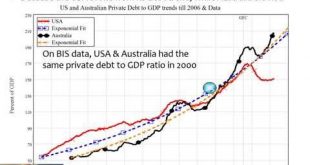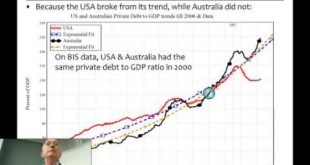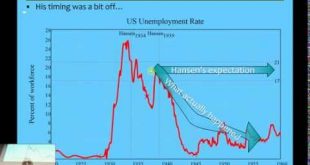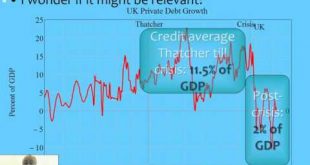This is the first third of a workshop on alternatives to Neoclassical economics that I gave in Malaysia on October 15 2016, after giving the keynote speech at the Symposium on Islamic Economics & Finance Education. I cover: (1) the recent change in the attitude of mainstream economists to their own models [Minutes 0-12] (2) building macroeconomic models from macroeconomic identities [12-30] (3) Can equity-based lending prevent crises? [[30-38] (4) Some questions INCLUDING "What is a...
Read More »Health Warning! “Realism” virus afflicting mainstream economists
Some papers that are remarkably critical of mainstream economics have been published recently, not by the usual suspects like myself, but by prominent mainstream economists: ex-Minneapolis Fed Chairman Narayana Kocherlokata, ex-IMF Chief Economist Olivier Blanchard, and current World Bank Chief Economist Paul Romer. I discuss these papers in a tongue-in-cheek introduction to another key problems of unrealism in economics--the absence of any role for energy in both Post Keynesian and...
Read More »Steve Keen interview on BBC HardTalk August 2016
Steven Sackur and I discuss why (mainstream) economists shouldn't be trusted, Brexit, the Euro, and overall the need to reform economics a decade after the Global Financial Crisis.
Read More »The Big Idea about Private Debt
This is a talk I gave to the Northern Ireland Big Ideas Event organised by NICVA: the "Northern Ireland Council for Voluntary Action" (http://www.nicva.org/event/big-ideas-festival-of-economics). Unfortunately I ran out of time to finish my presentation on why a "Modern Debt Jubilee" is needed to escape from the current economic state of credit stagnation, but I covered why it is this--and not "secular stagnation" that explains the prevalence of low rates of economic growth globally.
Read More »Why Australia (& Canada, Korea, China and others) can’t avoid a recession
Australia and South Korea were the only OECD nations to avoid a recession at the time of the Global Financial Crisis in 2008. I argue that they and several other countries--including China and Canada--face a recession in the near future, because the way they avoided the GFC was by continuing to borrow their way to prosperity.
Read More »Inequality, Debt and Credit Stagnation
What Larry Summers calls "secular stagnation"--which blames the limp economy on slower population growth and technical change--is actually "credit stagnation" due to too high a level of private debt. I explain the logic behind credit being an essential component of aggregate demand and income; the empirical consequences--including stagnation in the "Walking Dead of Debt" countries and coming crises in the "Future Zombies" countries; and a complex systems approach to economic modeling which...
Read More »Talk to Momentum at Bedford
Ann Pettifor and I amongst others warmed up for a talk by the Deputy Leader of the Labour Party, John McDonnell. This gave me a chance to put my major theme--that economic crises are caused by private debt bubbles--directly to a potential Chancellor of the Exchequer
Read More »Modeling financial instability with energy
My presentation to the "MOSES" seminar in Linkoping, Sweden, on Minsky as a way to include modeling of financial dynamics in a revised and updated model of the "Limits to Growth"
Read More »Zombies-To-Be and the Walking Dead of Debt
Using credit--which most other economists ignore--to explain why Japan, the USA and UK are among the "Walking Dead of Debt" and why China, Canada, Australia and South Korea are on their way to joining the Debt Zombies. This presentation is based on work I'm doing for a new 25000 word book for Polity Press entitled "Can we avoid another financial crisis?"
Read More »Transcending the Lucas Critique with Minsky. My talk in Manchester Economics For Everyone
I show that working from strictly true macroeconomic identities leads to Minsky's model of financial instability. I also build a Minsky model from scratch, showing the various features in the Open Source system dynamics program Minsky https://sourceforge.net/projects/minsky/). My talk in Manchester Economics For Everyone
Read More » Steve Keen’s Debt Watch
Steve Keen’s Debt Watch

